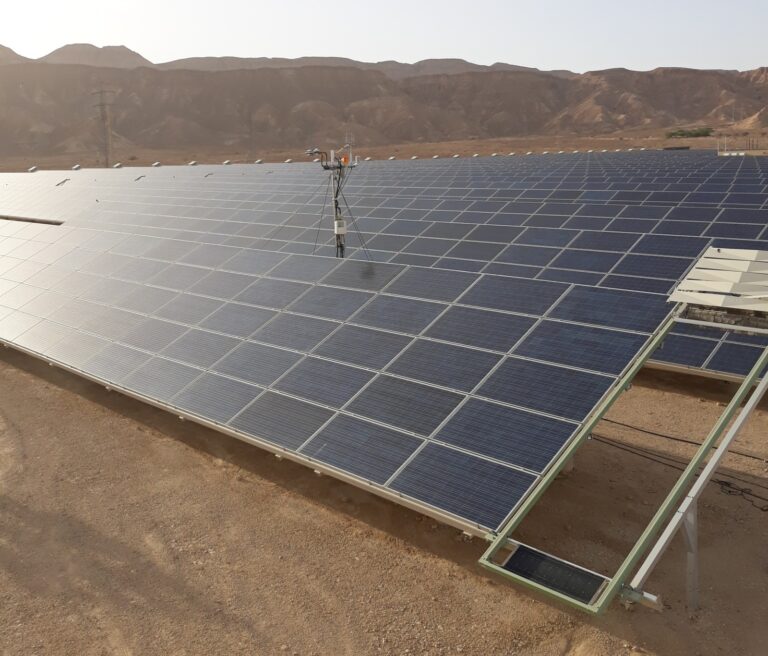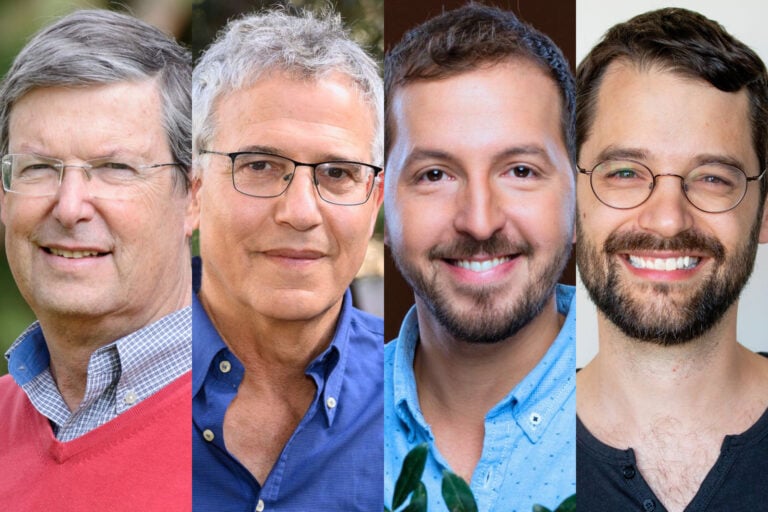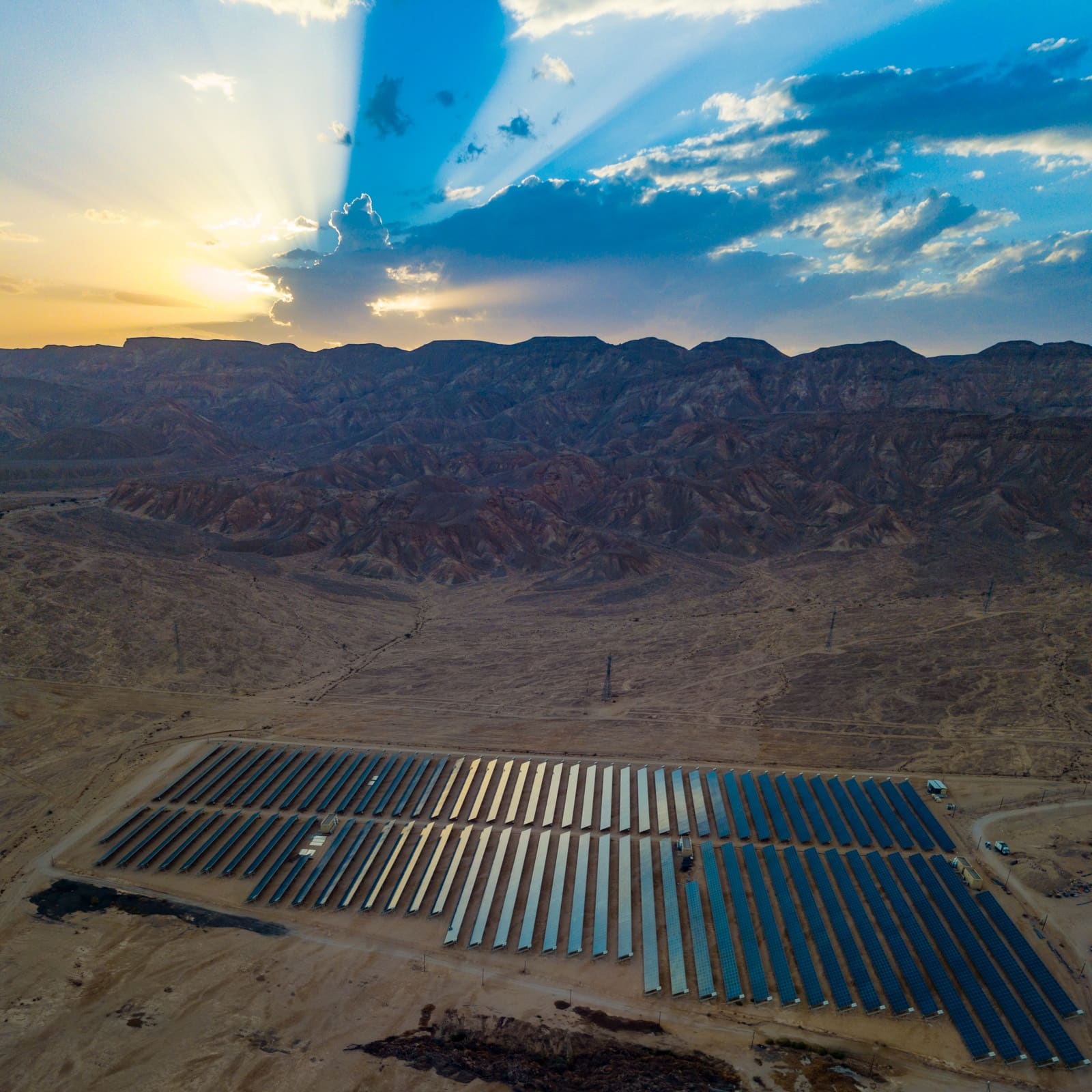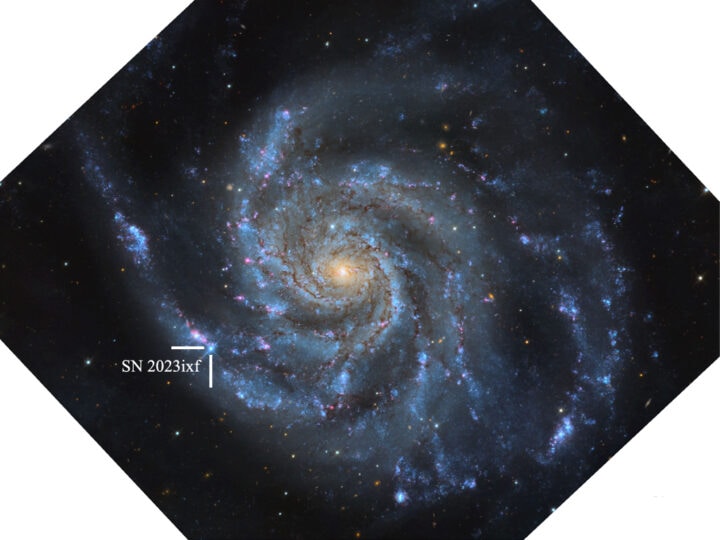In research that could shatter the current consensus on environmental solutions, scientists from Israel’s Weizmann Institute of Science recently discovered that in dry regions, solar farms are better than forests in offsetting climate change damage.
It has long been believed that the best way to fight climate change is to plant new trees, especially since cutting down tropical evergreen forests has played a significant role in exacerbating the environmental crisis.
The photosynthetic force of the trees is known to absorb the huge amount of carbon dioxide – the major greenhouse gas – that is pumped into the atmosphere.
While the solution of solar farms to combat the crisis had been discussed in the past by environmental officials, it was believed that it was too problematic from the climate perspective.
Since most solar panels are dark, they absorb a large proportion of the sun’s radiation. Some of this heat energy is used to produce electricity in solar “forests,” but most of it returns to the atmosphere, heating it up further.
The Israeli scientists discovered that dark solar panels installed in light-colored desert soil don’t have the same effect. Light-colored soil, which characterizes dry regions, reflects a significant portion of the sunlight back into space, which does not add to the accumulation of heat in the atmosphere.
The researchers concluded that solar farms reduce the emission of carbon dioxide into the atmosphere in these regions better than new forests can absorb carbon dioxide from the atmosphere.
Methodology
In the first phase of the study, the Weizmann researchers traveled down to the Arava – the eastern part of the Negev Desert — in a special mobile station of their own design, meant to measure energy between the ground and the atmosphere in arid regions without solar panels.

They then moved the station inside a solar panel field. They repeated the experiment during every calendar season in one year.
The scientists then compared the results with data from Yatir Forest – located on the northern edge of the Negev Desert – collected over the past 20 years.
The researchers discovered it takes only two and a half years for the heat emitted by solar farms to be offset by carbon emissions. This includes the carbon emissions from the manufacture, transportation and operation of the panels, as well as of batteries used for electricity storage.
A forest of similar size would take more than 100 years of photosynthesis to offset the heating effect from planting large numbers of trees.
The study, published in PNAS Nexus, was led by Rafael Stern, Jonathan Muller and Eyal Rotenberg from Prof. Dan Yakir’s ecophysiology lab at the Weizmann Institute and co-authored by Madi Amer, also from Prof. Yakir’s lab, and Lior Segev of Weizmann’s Physics Core Facilities Department.

Stern and Muller said in a statement: “Our study unequivocally shows that in arid environments, where most of the open land reserves exist, building solar farms is far more effective than planting forests when it comes to dealing with the climate crisis.
“Having said that, forests currently absorb close to one-third of humanity’s annual carbon emissions, so it’s of paramount importance to safeguard this capability and prevent the kind of wide scale deforestation that takes place in tropical regions. Forests also play a vital role in the global rain cycle, in maintaining biodiversity and in many other environmental and social contexts.”

















